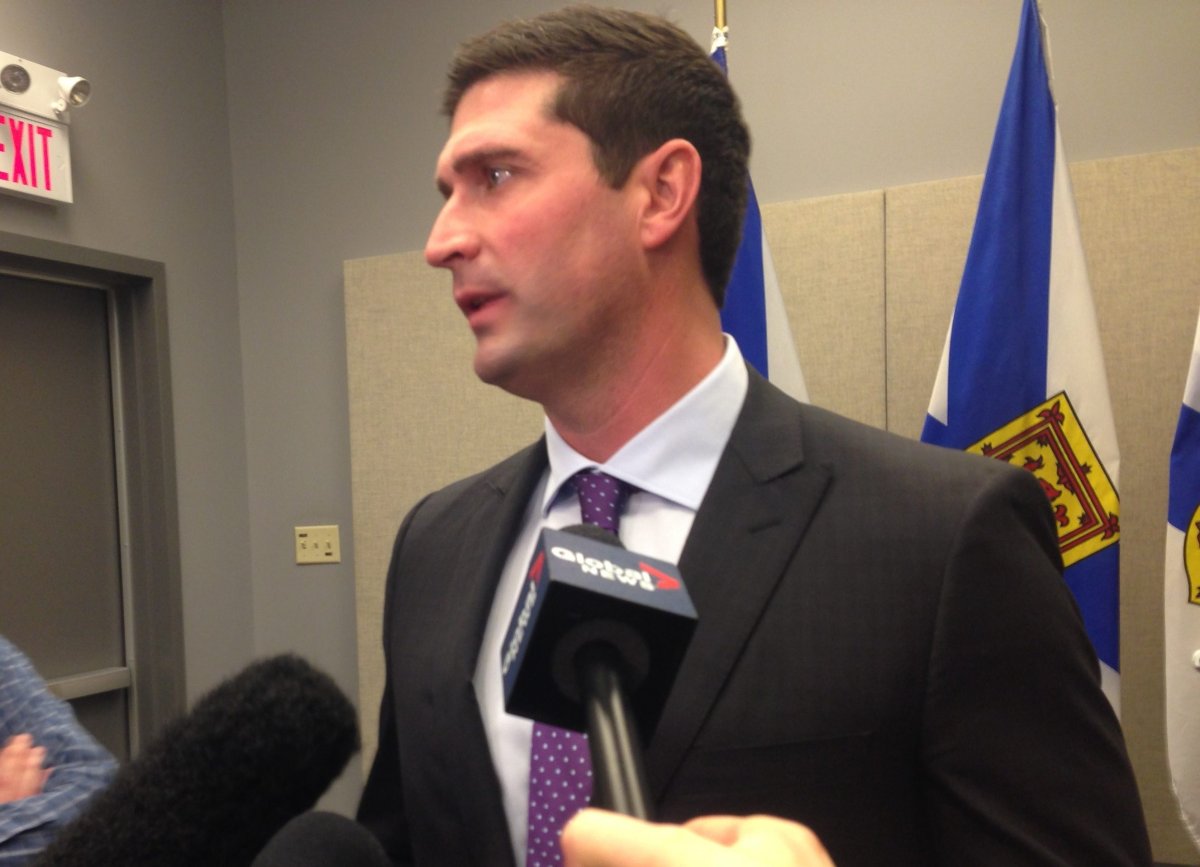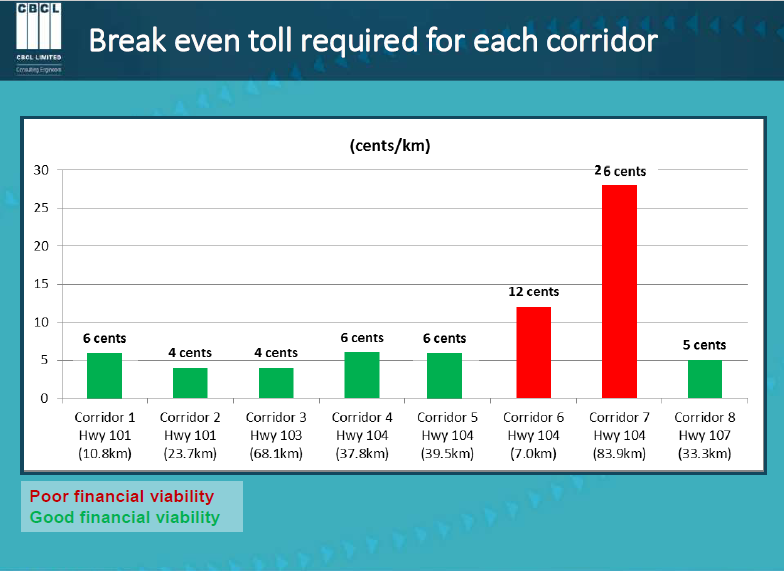A newly released report on twinning the province’s 100-series highways indicates 63 per cent of Nova Scotians consider their highways to be unsafe, while about 49 per cent of Nova Scotians support twinning.

READ MORE: Tolling Nova Scotia highways will allow twinning ‘decades earlier’: province
That’s the takeaway from 14 public consultations carried out across the province that 1,921 people took part in.
“This process has provided valuable feedback to the department. Government will be making its decision based on what we heard early next week,” said Geoff MacLellan, Minister of Transportation and Infrastructure Renewal, in a press release.
In addition to the public consultations, nearly 5,400 people provided feedback through an online survey, comment box and written submission. All responses in the report were submitted anonymously.
While it wasn’t universal, those who supported twinning cited the possibility of saving lives as a reason for twinning the 100-series highways.
“If we have to wait another 30 years to have these highways twinned, how many other lives will be lost? One is one too many,” wrote one person from the Antigonish area.
But many in the consultations said twinning wouldn’t solve the problems they felt made the highways unsafe. According to the report, some felt that use of cameras and speed indicator signs, driver education and enforcement of the highway act would be more useful — and cheaper — than twinning.

Bruce Heatherington, who lost his son Jamie in June of 2008 in a head-on collision near Tantallon, N.S., said that — even if twinning is rejected by some in the province — work, such as erecting barriers or widening the roads, would have to be done in order to make the 100-series highways safe.
“All of them need to get the work done on them that is required or else people are going to be killed,” he said.
The report also details opposition to the Nova Scotia government’s proposal to use tolls to help fund the twinning of highways.
At the time of the proposal, the government said they would allow for twinning to occur “decades earlier” than if “conventional approaches” were used. But close to 39 per cent of people who attended the consultations said they were opposed to tolls being implemented in their area.
Based on the total construction cost estimates, the proposed costs of the tolls range from four to 26 cents per kilometre.
“This could be a costly daily expense for peoples’ budgets. Many short-haul trips can become costly. Presenting cost in terms of cents rather than dollars in some cases may seem just pennies but they all add up to several dollars a day,” said one unnamed individual in the report.
Residents near the 104 highway between Sutherlands River and Antigonish, as well as sections leading to Port Hawkesbury, were the most open to using tolls to support twinning. The report states that for people in those areas twinning was the “best and only solution to improve the highway.”
Government officials have previously said the entire twinning project would take about 10 years, with construction possibly taking place on multiple sections of road at a time.
—With files from Heide Pearson, Global News
- Honda expected to announce Ontario EV battery plant, part of a $15B investment
- Trudeau says ‘good luck’ to Saskatchewan premier in carbon price spat
- Canadians more likely to eat food past best-before date. What are the risks?
- Hundreds mourn 16-year-old Halifax homicide victim: ‘The youth are feeling it’





Comments